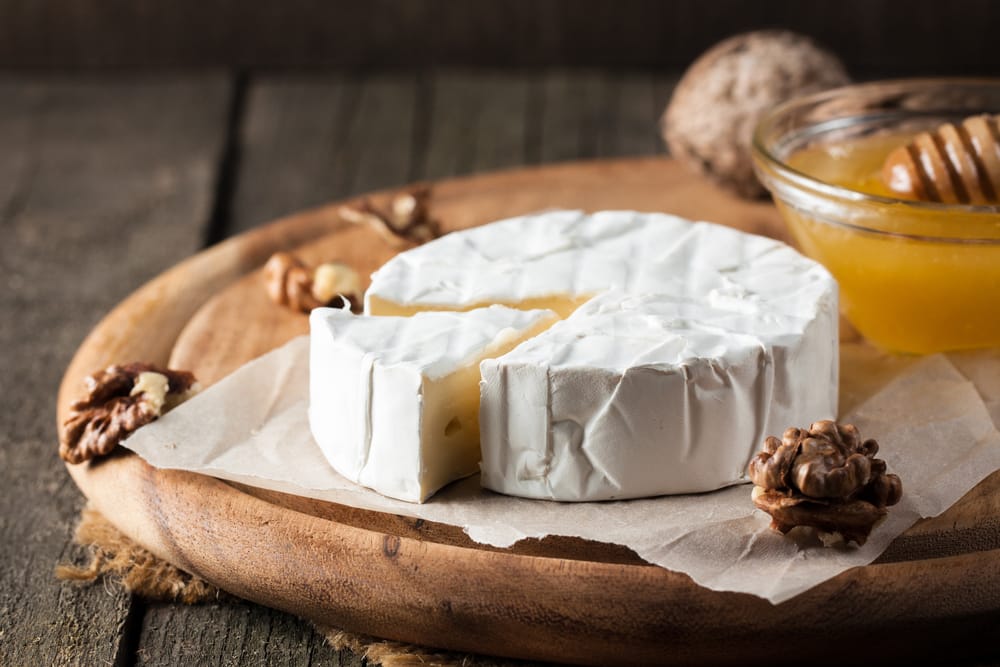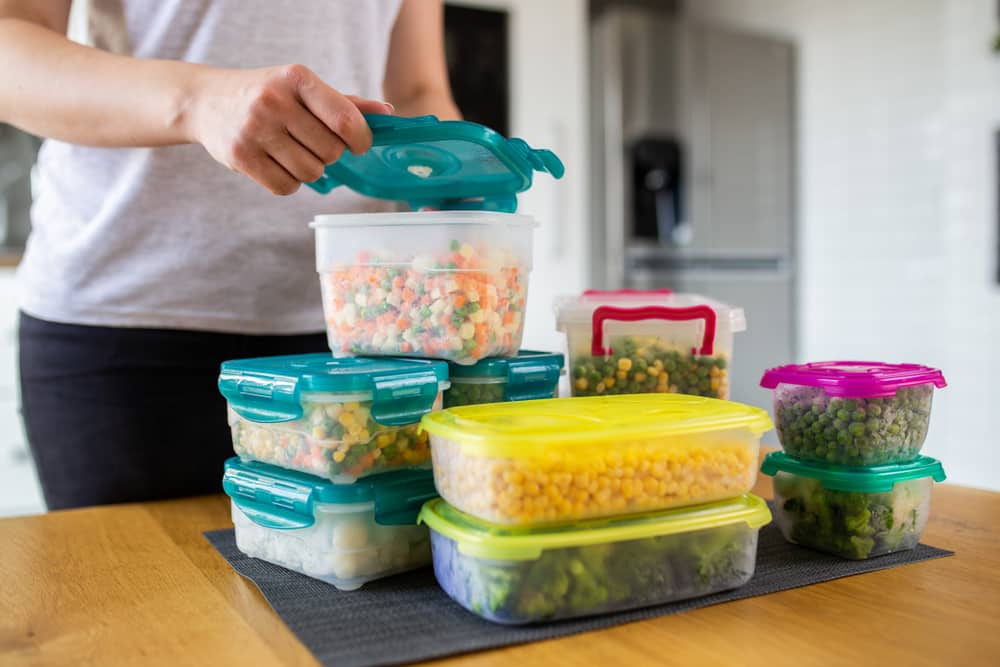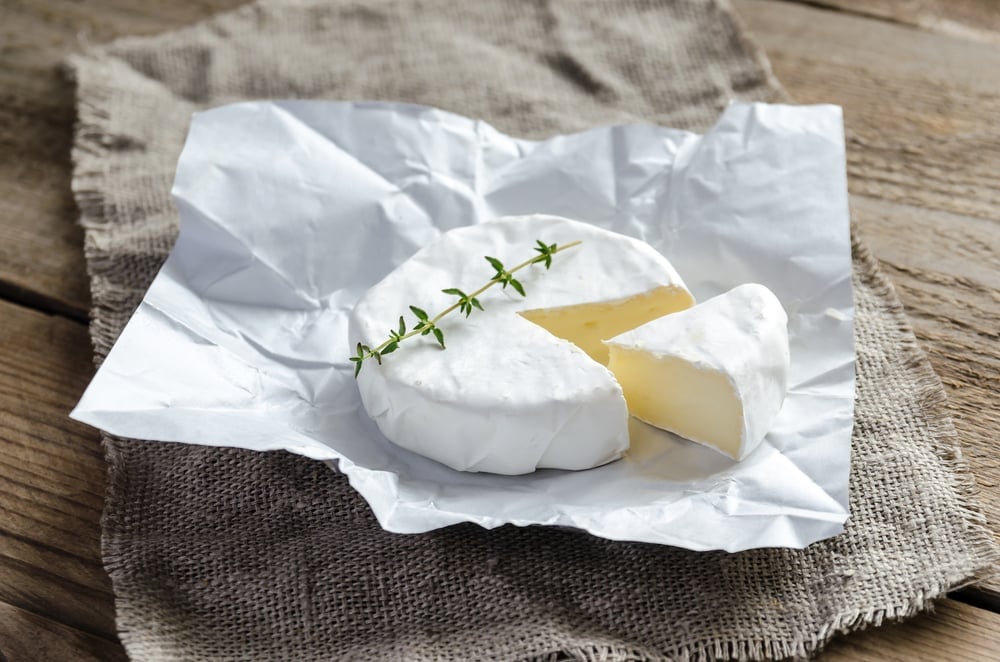Brie is one of the most popular cheeses worldwide. It's a beautifully soft cheese with an edible white rind that makes any dish extra decadent. Even though I love brie, I sometimes slice into one of those delicious rounds wondering if we'll get through it all before it spoils. If you're like me and you hate to see good food go to waste, a natural question to ask is: can you freeze brie cheese?
Short answer: yes, you can freeze brie!
So let's find out how to do it to maximise flavour and minimise hassle while staying safe!

How is brie cheese made?
Brie is a French cheese, but I was surprised to find it's also made all around the UK! European brie is usually made in the traditional methods using milk and a cheese culture which helps form the rind.
In the United States, it is more common to find so-called “stabilised brie”. Stabilised brie is pH stabilised, giving it a longer shelf-life and making it less susceptible to bacteriological infections.
Clearly, brie is much loved around the world!
So, if you love brie and always want it on hand for cravings, follow this step-by-step guide for freezing brie.
Make sure your brie is safe to freeze
Brie should be stored in an airtight container in the fridge to reduce the risk of bacteria spreading. This is particularly important with soft cheese as they are more susceptible to bacteria and spoiling faster.
If you plan to freeze your brie, put it in the fridge as soon as you get home. Or try to freeze it within a day of purchase to ensure you're freezing it at its best. This isn't always possible, but at least make sure you get it into the freezer before the 'use by date'.
If any mould has developed on the rind the brie is no longer safe to eat. In harder cheeses where you can potentially cut off the mould. However, in soft cheese, spores have a tendency to invisibly spread through the whole block.

Preparing your brie for the freezer
Before putting your brie in the freezer, think about what you might be using it for.
Can you freeze brie cheese whole? Well, it depends - do you want it for baked brie? Or can your freeze your brie cheese in slices?
It's generally better to freeze slices, so you can easily get out what you need. Bear in mind, once thawed you can't refreeze the brie. Just think about how you want to use it!
Brie has high water content, so freezing will change the texture and make it a little more crumbly.
If your freezer has a 'quick freeze' or 'flash freeze' mode, use that. It won't be as cold as an industrial flash freezer, but it will help to retain texture and taste. That's because as the food cools ice crystals form. Smaller crystals are better, as larger ones will negatively impact the texture. The faster it cools, the more numerous and smaller the crystals.
I prefer to use frozen brie for cooking, rather than on a cheeseboard. Though the texture will change the distinctive taste remains.
The best container to freeze brie
However you decide to freeze your brie cheese, as a whole or in slices - it needs to be kept airtight, and the best way to do this is with plastic food wrap.
You can keep it in its original packaging and add a layer of cling film, or carefully wrap your slices. Make sure you've got a good seal around the brie, it is important to limit the amount of air and moisture to help reduce the risk of freezer burn.
Once wrapped, I like to put them in a freezer-safe container to stop the brie from getting squashed or lost at the back of the freezer.
Make sure to label your container with the date you put the brie in the freezer and the date it will go off.

How long can I freeze brie?
Brie should keep in the freezer in an airtight container for 3 months. However, brie won't keep if it was of poor quality or you froze it after days open.
How to defrost frozen brie
When you are ready to enjoy your brie again, thaw the portion you need for 24 hours in the refrigerator.

I find that slow defrosting is the best method for minimising the effects of freezing on the texture and shape of the brie. Once it’s thawed, be sure to use it within two days. Don't refreeze the thawed brie.
Dishes to cook with your frozen brie
While it may look or feel slightly different, the taste should be just as delicious!
So cooking with frozen brie is a great way to showcase its beautiful flavour when it isn't on the cheeseboard.
Here are a few recommendations for using your frozen brie:
- My very own brie and blackberry pizza would work very well with frozen brie.
- Baked Brie with your favourite toppings - crushed nuts and fruit are always a winner.
- Try it instead of your normal nacho cheese for a totally new taste.
- Add the rind to a soup to impart flavour or use a thin slice on top to finish. I love minty pea soup with brie!
- A toasted brie baguette with cranberries makes a delicious and quick snack
- Brie is a fantastic pizza topping, just be careful not to overdo it, especially with stronger tasting brie.
- Place a little brie and jam in a puff pastry square, wrap and bake for a tasty finger snack.
For more tips on freezing food to reduce waste, check out my other how to freeze food articles.
Now you have all the knowledge required to freeze brie safely, thaw it out properly and use it effectively. Let me know in the comments how you get on or if you have any questions.

Vivian Ross says
got a lot of info and learned a lot! Thanks!